Find Help
More Items From Ergsy search
-

Applying For Universal Credit
Relevance: 100%
-

What is Universal Credit in the UK?
Relevance: 100%
-

How is Universal Credit paid?
Relevance: 94%
-

What is the Universal Credit helpline number?
Relevance: 91%
-
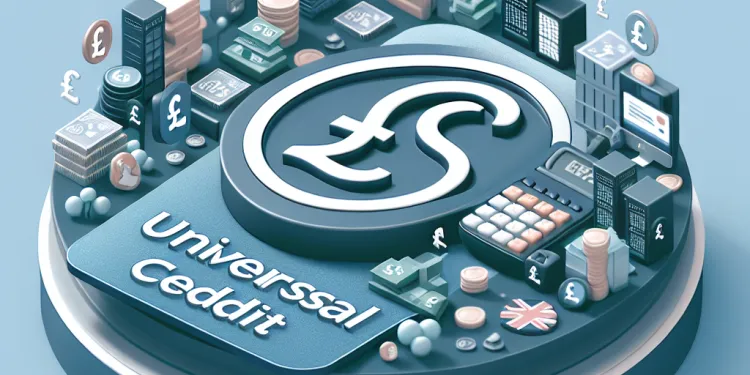
How can I apply for Universal Credit?
Relevance: 91%
-

How is the Universal Credit amount calculated?
Relevance: 91%
-
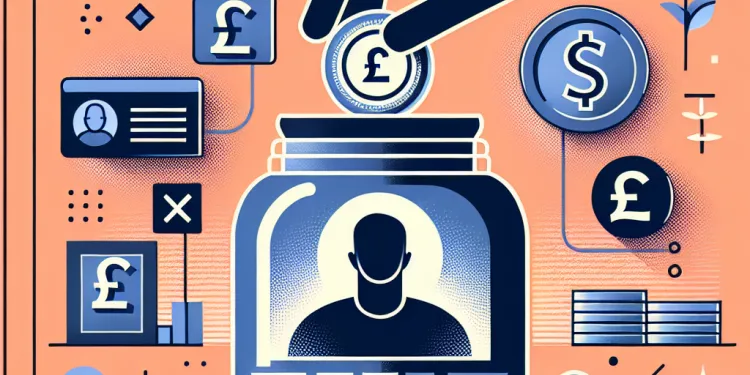
Can I apply for Universal Credit if I am self-employed?
Relevance: 91%
-

Can Universal Credit be stopped or sanctioned?
Relevance: 90%
-
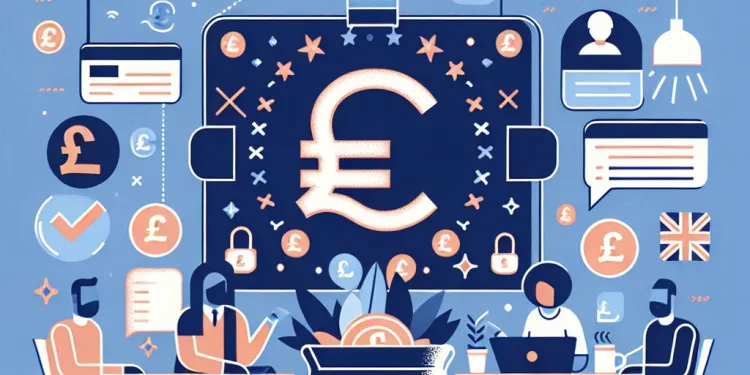
Who can apply for Universal Credit?
Relevance: 90%
-
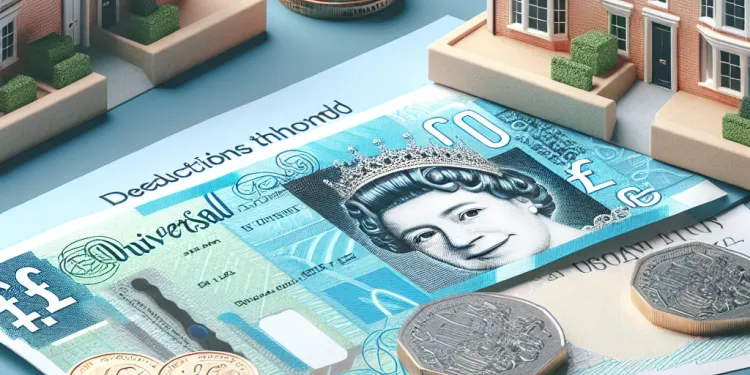
Are there any deductions from Universal Credit?
Relevance: 90%
-
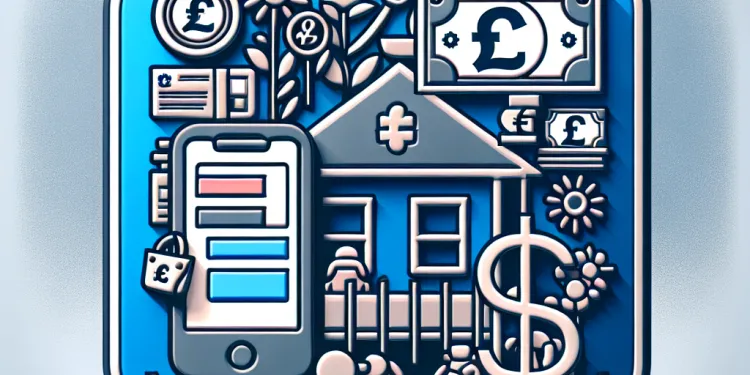
Does Universal Credit cover childcare costs?
Relevance: 86%
-
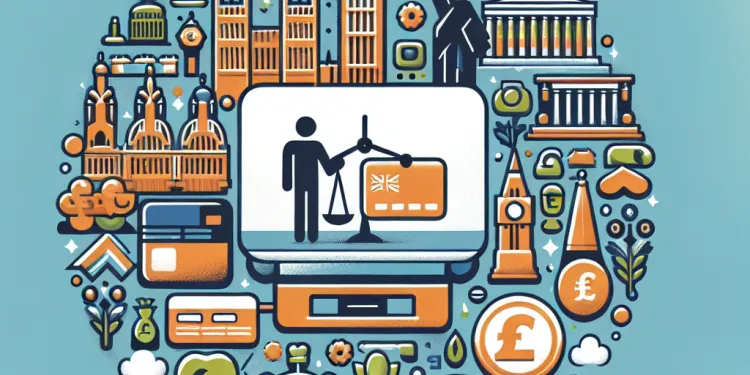
What if I disagree with a Universal Credit decision?
Relevance: 83%
-

Can you receive Universal Credit if you are in full-time education?
Relevance: 82%
-
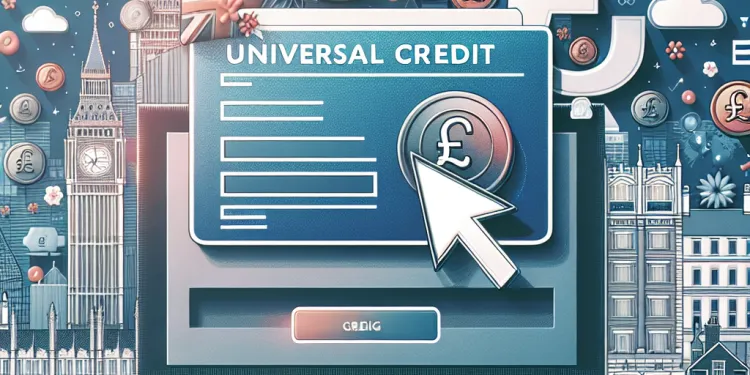
What documents are required to apply for Universal Credit?
Relevance: 82%
-

Government Announces Increase in Universal Credit Payments Ahead of Winter
Relevance: 80%
-

What work-related requirements exist for Universal Credit claimants?
Relevance: 79%
-

Universal Credit Adjustments: What Recent Changes Mean for Claimants
Relevance: 79%
-

How long does it take to receive the first Universal Credit payment?
Relevance: 79%
-

What is an advance payment of Universal Credit?
Relevance: 68%
-
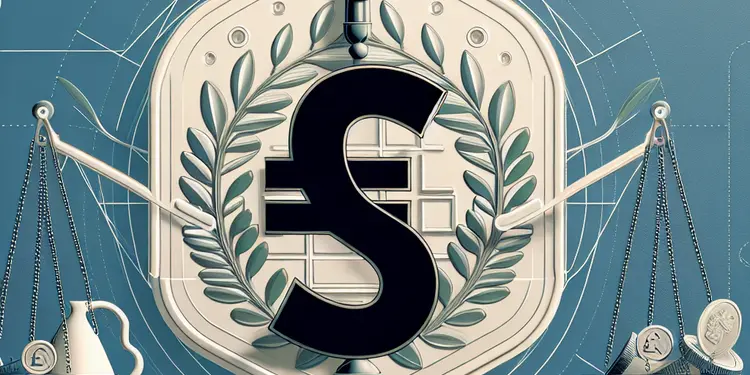
High Court Ruling on Universal Credit 'Unlawful' Cap Pending
Relevance: 58%
-

Are there changes expected for tax credits in April 2026?
Relevance: 50%
-
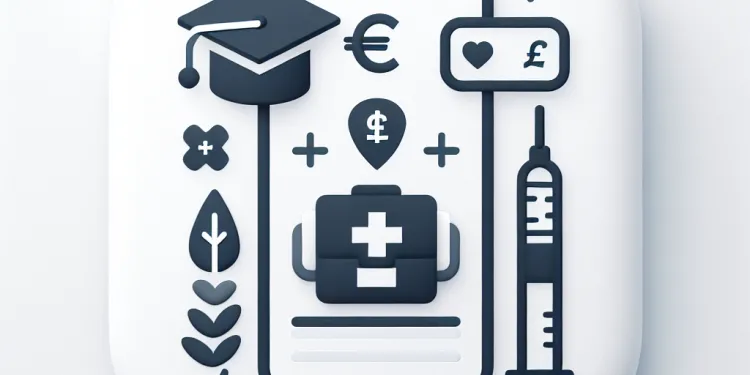
Can first aid courses be applied for college credit?
Relevance: 49%
-
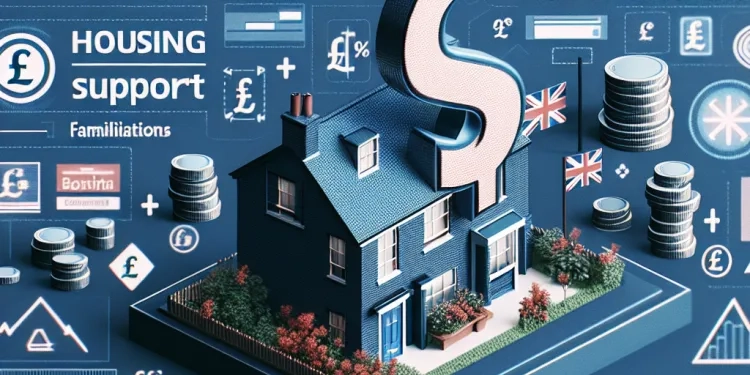
Is housing support included in Universal Credit?
Relevance: 48%
-
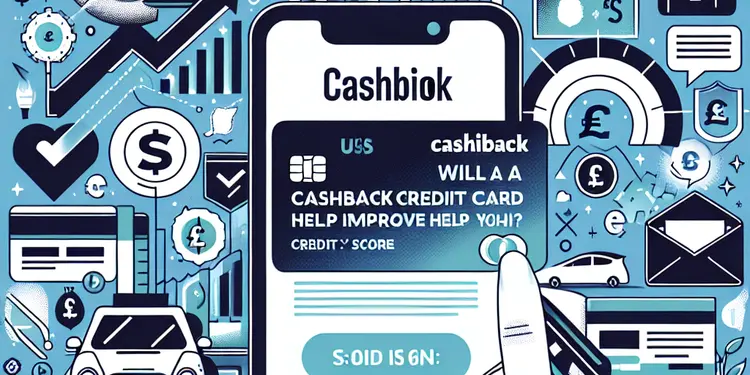
Will a cashback credit card help improve my credit score?
Relevance: 47%
-
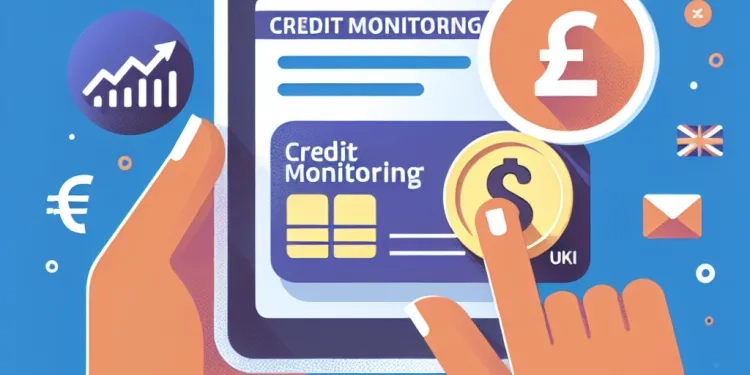
What is credit monitoring?
Relevance: 46%
-

Credit Union tour of Wales
Relevance: 43%
-

What is credit card fraud?
Relevance: 43%
-
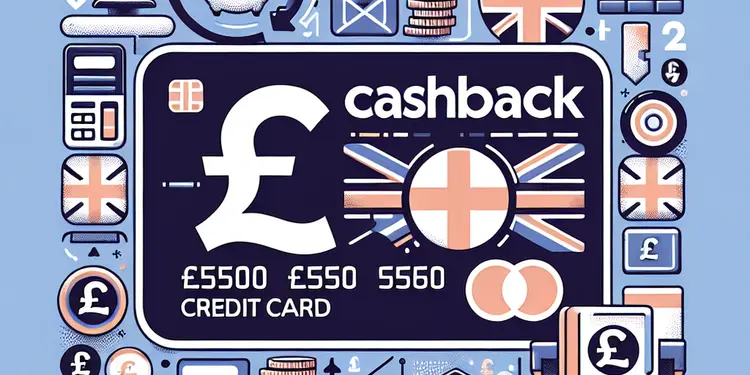
What is a cashback credit card?
Relevance: 43%
-

Is a cashback credit card right for me?
Relevance: 43%
-

Will transferring a balance affect my credit score?
Relevance: 42%
-

What happens if I have a credit on my account?
Relevance: 42%
-

How does Universal Credit affect other benefits?
Relevance: 42%
-

Will switching banks affect my credit score?
Relevance: 42%
-

Will switching banks affect my credit score?
Relevance: 42%
-
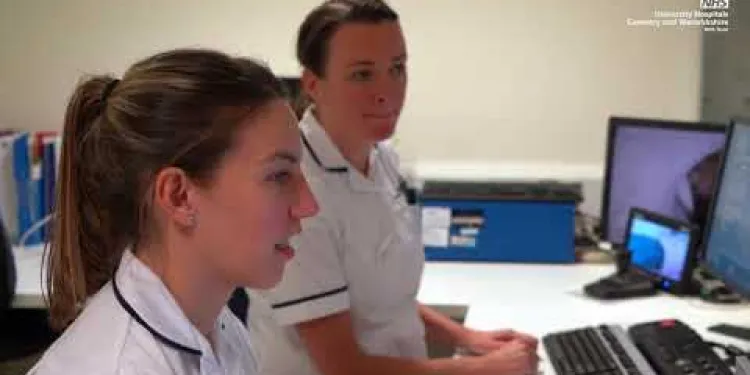
Radiotherapy Services at University Hospital
Relevance: 41%
-

Can eviction affect my credit score?
Relevance: 41%
-

What is a balance transfer credit limit?
Relevance: 41%
-
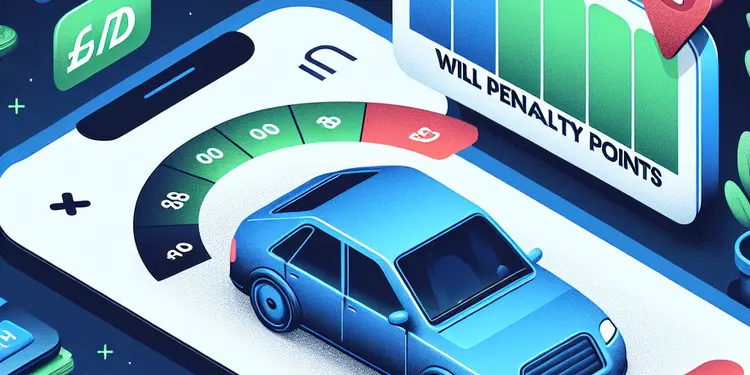
Will penalty points affect my credit score?
Relevance: 41%
-
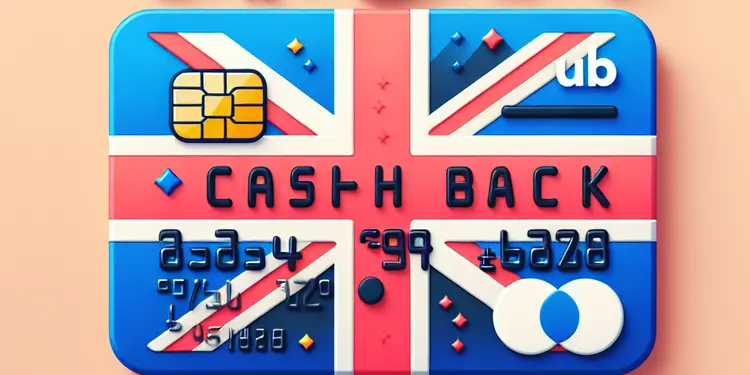
Can I transfer cashback rewards to another credit card?
Relevance: 41%
-

What is a Balance Transfer Credit Card?
Relevance: 41%
Universal Credit in Coventry
Introduction to Universal Credit
Universal Credit is a social security payment in the United Kingdom that supports individuals or households with low incomes or those who are out of work. It was created to combine six legacy benefits into one single payment to simplify the welfare system. Coventry, like many other cities in the UK, has numerous residents who rely on Universal Credit to make ends meet.
Eligibility for Universal Credit
To qualify for Universal Credit in Coventry, applicants must be over 18 years old (with certain exceptions for some 16-17-year-olds), be under State Pension age, and meet specific residency and income criteria. Applicants must also have less than £16,000 in savings and investments. Those who are working can still receive Universal Credit if they have low income.
How to Apply for Universal Credit in Coventry
Applying for Universal Credit is mainly done online through the GOV.UK website. Individuals need to create an online account and complete their application by providing personal details, income information, and other necessary documentation. In cases where applicants face difficulties with online applications, the Jobcentre Plus in Coventry offers assistance.
Receiving Payments and Managing UC Account
Universal Credit payments are usually made monthly and deposited directly into the recipient’s bank, building society, or credit union account. Recipients in Coventry must regularly check their online Universal Credit account to manage their claims, report changes in circumstances, and communicate with their work coach. It is crucial to keep the account updated with any changes to avoid overpayments or potential penalties.
Support Services in Coventry
Coventry City Council provides additional support and guidance for residents who claim Universal Credit. Apart from the local Jobcentre Plus offices, several charities and community organizations in Coventry, such as Citizens Advice Coventry, offer advice and help to manage and understand Universal Credit. They can assist with budgeting, debt advice, and resolving any problems with claims.
Conclusion
Universal Credit plays a vital role in supporting Coventry’s low-income households and those seeking employment. Understanding the eligibility criteria and the application process can help Coventry residents make the most of this benefit. Local resources and support services are available to ensure that anyone who needs assistance can access it effectively.
Applying for Universal Credit
Universal Credit is a welfare benefit in the United Kingdom designed to support individuals who are out of work or on a low income. It combines several benefits into one monthly payment. Here is a guide to help you understand the process of applying for Universal Credit.
Understanding Eligibility
Before applying for Universal Credit, it is crucial to check if you're eligible. Generally, you must be over 18, under the State Pension age, and have less than £16,000 in savings. If you live with a partner, their savings and income will also be considered. Additionally, you must reside in the UK. Some exceptions exist for certain groups, such as people with disabilities or those in education.
Preparing Your Application
To apply for Universal Credit, you'll need to gather some essential information. This includes your National Insurance number, bank account details, housing information, and details of any income you receive. Preparing these documents in advance can help streamline the application process.
Completing Your Application Online
Applications for Universal Credit are primarily done online, making it accessible and straightforward. You'll need to create an account on the Universal Credit platform. Once your account is set up, you can start the online application. Ensure you fill out all necessary sections accurately to avoid delays. If you have any issues during the process, government helplines are available for assistance.
Attending Your Interview
After submitting your application, you will be required to attend an interview at your local Jobcentre Plus. During this meeting, you'll discuss your situation and how Universal Credit can support you. It's essential to treat this interview as a serious part of your application process, as it confirms your eligibility for the benefit.
Receiving Your Payment
Once your application is processed and approved, you'll receive a notification detailing your expected payments. Universal Credit is paid monthly, and the amount may vary based on your circumstances. It is important to budget accordingly and consider any deductions that might apply, such as rent payments.
Managing Changes
If your circumstances change, it is critical to inform Universal Credit promptly. Changes in income, household composition, or address could affect your entitlement, as timely updates can prevent any overpayments and the need to repay them.
Navigating the Universal Credit system may seem daunting, but understanding the process and requirements can help make your application successful.
Applying for Universal Credit
Understanding Universal Credit
Universal Credit is a welfare benefit in the United Kingdom designed to support those who are on a low income, out of work, or unable to work. It was introduced to simplify the benefits system by consolidating six means-tested benefits into a single payment. These benefits include Jobseeker’s Allowance, Employment and Support Allowance, Income Support, Working Tax Credit, Child Tax Credit, and Housing Benefit.
Eligibility Criteria
To apply for Universal Credit, you need to meet certain eligibility criteria. You must be at least 18 years old, though exceptions exist for some 16- and 17-year-olds. You must live in the UK and not be in full-time education or training. Additionally, you need to have savings and capital of £16,000 or less, and your partner must meet these requirements if you live together.
The Application Process
Applying for Universal Credit is primarily done online through the UK government's official website. You will need to provide personal information such as your National Insurance number, bank account details, information about your housing, income, savings, and ongoing costs like childcare. After submitting your application, you may need to attend an interview at your local Jobcentre Plus, which can be arranged via phone or online to accommodate your schedule.
Managing Your Claim
Once your application is successful, you need to manage your claim through your online account. This platform allows you to update details, communicate with your work coach, and report changes in circumstances. It is important to report any changes in your work, income, or household situation as they occur to ensure you receive the correct amount of benefit.
Receiving Payments
Universal Credit is paid monthly directly into your bank account. The amount you receive depends on several factors, such as your earnings, housing, and whether you have children or a disability. If you face financial difficulties as you transition to Universal Credit, you may be eligible for an advance payment to help you manage until your first payment arrives.
Universal Credit in Coventry
What is Universal Credit?
Universal Credit is money from the government in the UK. This money helps people who don't have a lot of money or don't have a job. It combines six different benefits into one. This makes it easier for people to get help. Many people in Coventry use Universal Credit to help them live.
Who Can Get Universal Credit?
To get Universal Credit in Coventry, you must be 18 years or older, but some young people aged 16-17 might qualify. You also need to be younger than the age for a pension. You must live in the UK and not have more than £16,000 in savings or investments. People who have jobs can still get Universal Credit if they don't earn much money.
How to Apply for Universal Credit in Coventry
To apply for Universal Credit, you mostly do it online at the GOV.UK website. You need to make an online account. Then, you fill out the application with your personal details and how much you earn. If you find it hard to apply online, you can visit Jobcentre Plus in Coventry for help.
Getting Payments and Managing Your Account
You get Universal Credit payments every month. The money goes directly into your bank account. In Coventry, you need to check your Universal Credit account online. This helps you manage your claims, tell them about changes in your life, and talk to your work coach. Always keep your account updated to avoid any problems with payments.
Help and Support in Coventry
Coventry City Council gives extra help to people on Universal Credit. You can also get help from charities and community groups like Citizens Advice Coventry. They can teach you about managing your money, dealing with debts, and fixing problems with your claims.
Final Thoughts
Universal Credit is important for people in Coventry who need money or are looking for work. Knowing the rules and how to apply can help you get the most out of it. There are many places in Coventry where you can get help if you need it.
Applying for Universal Credit
Universal Credit is a type of help from the government in the UK. It is for people who do not have a job or do not earn much money. Universal Credit gives you one payment each month. Here is how to apply for it.
Understanding Eligibility
Before you apply for Universal Credit, you need to check if you can get it. You usually need to be over 18 years old, not yet getting a State Pension, and have less than £16,000 in savings. If you have a partner, their money will count too. You must also live in the UK. Some people, like those with disabilities or studying, might have different rules.
Preparing Your Application
When you apply for Universal Credit, you need some important information. You will need your National Insurance number, bank account details, information about your home, and any money you earn. Getting these ready before you apply can make things easier.
Completing Your Application Online
You can apply for Universal Credit online. This is simple and easy. First, make an account on the Universal Credit website. After that, you can start your application. Make sure to fill in everything correctly so there are no delays. If you need help, you can call government helplines.
Attending Your Interview
After you apply, you will need to go to a meeting at your local Jobcentre Plus. Here, you will talk about your situation and how Universal Credit can help you. This meeting is important because it helps decide if you can get Universal Credit.
Receiving Your Payment
Once your application is approved, you will get a letter telling you about your payments. Universal Credit is paid once a month. How much you get can change based on your situation. It's important to plan your money well and know about any costs that will be taken out, like rent.
Managing Changes
If things change for you, like your income or where you live, you must tell Universal Credit quickly. This is important to make sure you get the right amount of money and to avoid having to pay any money back.
Applying for Universal Credit might seem hard, but knowing what to do can help you get it successfully.
Applying for Universal Credit
Understanding What Universal Credit Is
Universal Credit is money from the government. It helps people in the UK who do not make much money, do not have a job, or cannot work. It makes things simpler by bringing together six different types of benefits into one payment. These benefits include money for looking for a job, help if you can't work, extra money for low pay, money to help with children, and help with housing costs.
Who Can Get Universal Credit?
To get Universal Credit, you must pass some rules. You need to be 18 years old or more. Sometimes, 16 or 17-year-olds can get it too. You must live in the UK and not be in full-time school or training. Also, you should have savings of £16,000 or less. If you live with a partner, they must meet these rules too.
How to Apply for Universal Credit
You apply for Universal Credit on the internet using the UK government's website. You will need to give details like your National Insurance number, bank details, where you live, your earnings, savings, and any regular costs like childcare. After applying, you might need to have a meeting at the local Jobcentre Plus. This can be done by phone or online at a time that works for you.
Looking After Your Universal Credit
If your application is accepted, you will manage it through an online account. This account lets you update your information, talk to your work coach, and tell them about any changes in your life. It is important to tell them about changes in your job, money, or home to make sure you get the right amount of money.
Getting Your Payments
Universal Credit money is given every month straight to your bank account. How much you get depends on things like your wages, home costs, and if you have children or a disability. If you have money troubles when you first switch to Universal Credit, you might be able to get an early payment to help until your first payment arrives.
Frequently Asked Questions
What is Universal Credit?
Universal Credit is a payment to help with your living costs. It's paid monthly, and you may be able to get it if you’re on a low income or out of work.
Who is eligible for Universal Credit?
To be eligible for Universal Credit, you must live in the UK, be aged 18 or over (some exceptions apply), be under State Pension age, have less than £16,000 in savings, and not be in full-time education.
How do I apply for Universal Credit in Coventry?
You can apply for Universal Credit online through the UK government website. You'll need an email address, bank account details, information about your housing, and income details.
Can I apply for Universal Credit if I have a job?
Yes, you can apply for Universal Credit even if you are working. The amount you receive will depend on your income and other circumstances.
How much will I get on Universal Credit?
The amount you receive will depend on your specific circumstances, such as whether you have children, a disability, or caring responsibilities.
When will I get my first payment?
After you apply, it usually takes about five weeks to get your first payment. This includes a one-month assessment period and up to seven days for the payment to be processed.
What should I do if I need money before my first Universal Credit payment?
If you need money before your first payment, you can apply for an advance payment, which you will need to pay back from future Universal Credit payments.
Is Universal Credit paid monthly or weekly?
Universal Credit is paid monthly. However, if you're in Scotland, you can choose to receive payments twice a month.
Do I need to go to the Jobcentre to claim Universal Credit?
You may need to attend an initial interview at the Jobcentre. After that, most interactions can be managed online or over the phone.
How do I report a change in circumstances?
You must report any changes in your circumstances through your Universal Credit online account. This includes changes in your income, housing, family situation, or health.
What happens if I forget to report a change in circumstances?
Failing to report a change in circumstances could result in receiving overpayments, which you will have to repay, and it may affect the amount of Universal Credit you’re entitled to.
Can I get help with housing costs through Universal Credit?
Yes, Universal Credit can include a housing element to help with rent and some service charges. The amount depends on your circumstances and where you live.
Can I claim Universal Credit if I’m self-employed?
Yes, self-employed people can claim Universal Credit. You'll need to report your earnings and they will be assessed each month to calculate your payment.
Will Universal Credit affect other benefits I’m receiving?
Universal Credit replaces several existing benefits, including Jobseeker's Allowance, Housing Benefit, and Working Tax Credit. Usually, you cannot receive these and Universal Credit at the same time.
What should I do if my application for Universal Credit is refused?
If your application is refused and you believe the decision is wrong, you can challenge it by asking for a mandatory reconsideration. If you are still unhappy with the decision, you can appeal to a tribunal.
What is Universal Credit?
Universal Credit is a monthly payment to help with your living costs. It’s designed to support you if you’re on a low income or out of work in the UK.
How do I apply for Universal Credit?
You can apply for Universal Credit online through the UK government website. You'll need an email address, bank details, and information about your income and expenses.
Who is eligible for Universal Credit?
You may be eligible if you’re on a low income or out of work, over 18 but under State Pension age, and have less than £16,000 in savings.
How long does it take to receive my first Universal Credit payment?
After you apply, it usually takes about five weeks to receive your first payment, which includes a one-month assessment period and seven days for the payment to be processed.
Can I get an advance on my Universal Credit payment?
Yes, you can apply for an advance payment to help cover your living costs while waiting for your first Universal Credit payment.
Do I need to attend any appointments for Universal Credit?
Yes, you may need to attend an interview at your local Jobcentre Plus as part of your claim process.
Can I claim Universal Credit if I’m studying?
It depends. If you're in full-time education, you typically cannot claim Universal Credit unless you meet certain exceptions, such as being responsible for a child or having disabilities.
What impact does working have on my Universal Credit?
Universal Credit is gradually reduced as you earn more. For every £1 you earn, your payment reduces by 55p until your income reaches a certain limit.
Do I need to report changes in my circumstances?
Yes, it’s crucial to report any changes in your circumstances, such as changes to your income, housing situation, or family size, to ensure you’re receiving the correct payment.
What if I disagree with a decision on my Universal Credit claim?
If you disagree with a decision, you can ask for a mandatory reconsideration. This process allows you to request a review of the decision.
Can I still claim other benefits if I’m receiving Universal Credit?
You may be eligible for other benefits, such as Personal Independence Payment, but Universal Credit replaces several existing benefits like Jobseeker's Allowance and Housing Benefit.
Does Universal Credit cover housing costs?
Yes, Universal Credit can include a housing cost element to help with rent or mortgage payments, depending on your situation.
How is Universal Credit paid?
Universal Credit is paid monthly, directly into your bank, building society, or credit union account.
Can I apply for Universal Credit if I have savings?
You can apply if your savings are below £16,000. Having savings over £6,000 might reduce the amount you receive.
How does Universal Credit support people with disabilities?
Universal Credit includes additional support for people with disabilities or health conditions affecting their ability to work.
What is Universal Credit?
Universal Credit is a payment to help with your living costs. It is for people who do not have a lot of money, or who do not have a job. You can get it if you are looking for work or if you cannot work.
If you need help understanding this, you can ask someone you trust, like a family member or a carer. There are also websites and phone helplines that can help explain it to you.
Universal Credit is money to help you with your living costs. You get paid once a month. You might get it if you do not earn much money or if you do not have a job.
Who can get Universal Credit?
Universal Credit is money to help you live. You might get it if you:
- Are 18 or older. But, some young people aged 16 or 17 can get it too.
- Do not have much money or a job.
- Aren’t retired and get money from the government.
- Live in the UK.
If you need help, ask someone like a friend or family member. You can also talk to a support worker who helps with money things.
To get Universal Credit, you need to:
- Live in the UK.
- Be 18 years old or older (there are some exceptions).
- Be younger than State Pension age.
- Have less than £16,000 in savings.
- Not be studying full-time.
If you find it hard to read, you can use tools that read text out loud for you. Ask someone if you need help understanding.
How do I apply for Universal Credit in Coventry?
If you live in Coventry and want to apply for Universal Credit, here is what you can do:
1. Go online: Use a computer, tablet, or phone to visit the Universal Credit website.
2. Create an account: Make your own username and password to start.
3. Fill out the form: Answer questions about you, your money, and where you live.
4. Get help if needed: You can ask someone you trust or use a local service to help you with the form.
5. Submit your application: Once you have filled out everything, send it in online.
6. Support tools: You can use a calculator to see how much money you might get or watch a video for more help.
You can ask for Universal Credit on the UK government website. You need an email address, your bank details, information about your home, and how much money you get.
Can I get Universal Credit if I have a job?
Yes, you can get Universal Credit if you work. Universal Credit helps people who do not make a lot of money. Even if you have a job, you might still have trouble paying for everything you need.
You can use a benefits calculator. This tool helps you see if you can get Universal Credit. Ask for help if you need it.
Talk to someone who knows about benefits if you find it hard to apply. They can give you advice and help you understand what to do.
Yes, you can still get Universal Credit if you have a job. How much money you get will depend on how much you earn and what's going on in your life.
How much money do I get from Universal Credit?
Universal Credit is money from the government to help you. To find out how much you get, you can do these things:
- Use an online calculator. It helps you know how much money you can get.
- You can ask someone who works at a place like a job center. They can help you understand.
- Look at letters or online messages from the Universal Credit service. They tell you how much you get.
If you need help, ask a friend, family member, or support worker to explain. It's okay to ask questions until you understand.
The money you get depends on things like if you have kids, a disability, or if you look after someone.
When will I get my first payment?
You will get your first payment soon. It can take a few weeks to arrive. Check your bank or email for updates. Ask someone to help if you are unsure.
When you apply, you usually wait about five weeks to get your first money. This time includes one month to check your details and up to seven days to send the money.
If you find reading hard, try using a ruler or your finger to follow the words. Audiobooks or text-to-speech tools can also help.
What can I do if I need money before my first Universal Credit payment?
If you need money before you get your first Universal Credit payment, here are some things you can do:
- Ask for an advance payment. This is early money from your Universal Credit. You will pay it back later.
- Check if you can get help from a local food bank. They give free food to people in need.
- Talk to someone at Citizens Advice. They can help you find more support.
It might help to ask a friend or family member to go with you to meetings or help you make phone calls.
If you need money before you get your first payment, you can ask for an advance payment. This is money you get now but will have to give back later from your future Universal Credit payments.
Do you get Universal Credit every month or week?
Universal Credit gives you money.
You get this money every month.
If you find it hard to wait a month, you can ask for help.
Talk to someone for advice or use a calendar to plan.
Universal Credit gives you money once a month. But if you live in Scotland, you can ask to get money twice a month.
Do I have to go to the Jobcentre to get Universal Credit?
If you want to get Universal Credit, you might need to visit the Jobcentre. Sometimes, you can do some things online. But you might still have to go in person. If you're not sure what to do, you can ask for help.
Here are some things you can use for help:
- Ask someone you know to help explain what to do.
- Look for videos about how to get Universal Credit online.
- Call the Universal Credit helpline for advice.
You might have to go to a first meeting at the Jobcentre. After that, you can usually do most things online or on the phone.
How can I tell someone about a change in my life?
Here is how you can let them know:
- Write it down or ask someone to help you write it.
- Use a computer or phone to fill out a form.
- Call the person or office you need to tell.
If you need help, ask a friend, family member, or a support worker. They can help you share the information.
Use tools like a speech-to-text app if talking is easier for you.
You need to tell Universal Credit if your life changes. Use your online account to do this. Life changes could be:
- Money changes
- Where you live changes
- Family changes
- Health changes
If you find it hard, ask someone you trust to help you. You can also use tools like read-aloud apps or talk-to-text to make it easier.
What if I forget to tell someone about a change?
If you forget to tell someone about a change in your life, they might make a mistake in your details. This can create problems later.
Tools that can help:
- Write notes to remind yourself to tell someone about changes.
- Ask a friend or family member to help you remember.
- Use a calendar to mark important changes.
If you don’t tell them when your situation changes, you might get too much money. You will have to give this extra money back. It can also change how much Universal Credit you should get.
Can Universal Credit help me pay for my home?
If you get Universal Credit, you might get money to help pay for your home.
Here are some things to know:
- You can get help to pay rent.
- If you own your home, you might get help with loans.
Need more help? You can:
- Ask someone you trust to help you read.
- Use a text-to-speech tool to read the words out loud.
Yes, Universal Credit can help pay for your rent. It might also help with some other costs where you live. How much you get depends on your situation and where you live.
Can I get Universal Credit if I work for myself?
Yes, you can try to get Universal Credit even if you work for yourself. Universal Credit is money to help you.
If you have trouble reading or writing, you can ask someone to help you fill out forms. You can also use a computer or phone to do this online.
Remember, you can call the Universal Credit helpline for help too. People there can answer your questions and help you with your claim.
Yes, people who work for themselves can get Universal Credit money. You have to tell them how much money you make every month, and they will work out how much money to give you.
You can use helpful tools like online calculators to check how much you might get. You can also ask someone you trust to help you with the forms.
Will Universal Credit change other benefits I get?
If you get Universal Credit, it might change some other benefits you get. For example, some benefits might stop or the amount you get could change.
If you need help, you can:
- Talk to someone at a benefit office.
- Ask a helper or friend to explain it to you.
- Look for support groups that help with money and benefits.
Universal Credit is a new kind of help with money. It takes the place of other money help, like Jobseeker's Allowance, Housing Benefit, and Working Tax Credit. You cannot get these old types of help while getting Universal Credit.
What can I do if they say "No" to my Universal Credit application?
If they say no to your application and you think they made a mistake, you can ask them to look at it again. This is called a mandatory reconsideration. If you still don't agree, you can ask for help from a special group of people called a tribunal. They will look at the decision too.
What is Universal Credit?
Universal Credit is money from the government. It helps people who do not have enough money. It can help if you do not have a job or if you earn very little. You can use Universal Credit to pay for things you need, like food and rent.
If you find reading hard, you can ask someone to help you understand Universal Credit. You can also use tools like text-to-speech to read the words out loud for you.
Universal Credit is money you get every month to help pay for your living costs. It is for you if you do not earn much money or do not have a job in the UK.
How do I apply for Universal Credit?
You want to ask for Universal Credit? Here’s how:
- Go to the Universal Credit website. It’s helpful if you have a computer or a tablet.
- You need to make an online account. The website will show you how to do this.
- Fill in the form. This means you answer questions about you and your money.
- If you need help, you can ask a friend or family member.
- You can also talk to someone at the Jobcentre for support.
Remember, keep your personal information safe!
You can sign up for Universal Credit on the UK government website. You will need:
- Your email address
- Your bank account details
- Details about your money coming in and going out
If you find this hard, ask someone you trust to help you. You can also use text-to-speech tools to read information out loud.
Who can get Universal Credit?
Universal Credit is a payment if you need help with money. You can get it if:
- You are 18 or older.
- You live in the UK.
- You have a low income or do not have a job.
- You have less than £16,000 in savings.
For help, you can:
- Ask someone you trust to explain.
- Use a computer to find out more.
- Call a helpline to ask questions.
You can get this help if:
- You don’t have much money or you don’t have a job.
- You are older than 18 years.
- You are younger than the age to get a State Pension.
- You have less than £16,000 saved up.
Try using a calculator or asking someone to help you check your savings.
How long will it take to get my first Universal Credit money?
When you apply for Universal Credit, you might have to wait about 5 weeks to get your first payment. This time includes the time it takes to review your application and a waiting period.
If you need help during this time, you can ask for an advance payment. This is some money you can borrow from your future payments.
You might find it useful to use a calendar or reminders on your phone to track the days until you get the payment. Talking to someone who has gone through the process or a support worker can also help you understand what to expect.
When you apply, you might wait about five weeks to get your first payment. This means you wait one month for us to check everything, and then seven more days for the payment to come to you.
Can I get money early from my Universal Credit payment?
Yes, you can get some money early from your Universal Credit. This is called an "advance payment."
To ask for an advance, you can do these things:
- Go online and sign in to your Universal Credit account.
- Call the Universal Credit helpline for help.
Tools that can help:
- Ask someone you trust to help you with your Universal Credit online account.
- Use text-to-speech tools that read text out loud.
Yes, you can ask for some money early to help pay for things you need while you wait for your first Universal Credit payment.
Do I have to go to meetings for Universal Credit?
Some people need to go to meetings when they get Universal Credit. These meetings are called appointments.
What are appointments for?
The appointments help you with your Universal Credit. They can also help with finding a job.
When do I need to go?
If you need to go to an appointment, you will be told when and where. Remember to write it down or put it in your calendar.
Helpful tips:
- Ask someone you trust if you need help understanding the letters or messages about appointments.
- Use a phone or a planner to keep track of your appointment times.
Yes, you might need to go to a meeting at your local Jobcentre Plus to help with your claim.
Can I get Universal Credit if I am studying?
Some people who are studying can get Universal Credit, but not everyone. Here are a few things to think about:
- If you are 21 or younger and studying full-time, you usually cannot get Universal Credit.
- If you are studying part-time, you might be able to get Universal Credit.
- If you have children or a disability, you might get Universal Credit, even if you are studying full-time.
It can be helpful to talk to someone for advice. You can:
- Ask your teacher or tutor for help.
- Talk to someone at the jobcentre.
- Call a helpline for advice about money and benefits.
Remember, everyone's situation is different, so it is good to ask for help to know if you can get Universal Credit.
It depends. If you go to school or college all the time, you usually can't get Universal Credit. But there are some exceptions. You might be able to get it if you look after a child or if you have a disability.
How does getting a job change my Universal Credit?
Universal Credit may be money that helps you. Getting a job can change how much money you get.
- When you work, you might get less money from Universal Credit.
- But, you can still keep some of your money when you start working.
- Try using a money calculator to see how work changes your Universal Credit. You can find these tools online.
If you have questions, you can ask for help. A friend, family member, or a support worker might be able to help you understand.
Universal Credit gives you less money when you earn more. For every £1 you earn, we take away 55p from your payment.
Do I need to tell someone if my life changes?
If something big changes in your life, you need to tell someone. This could be getting a new job, moving house, or having a new baby. It's important to keep people up to date so you get the right help and money you deserve.
If you are not sure who to tell, you can ask someone you trust or use online tools to help you find out. You can also use a calendar to remember important life changes.
It's very important to tell someone if things in your life change. This can be if you get more or less money, if your home situation changes, or if your family gets bigger or smaller. This helps make sure you are getting the right amount of money.
What can I do if I think my Universal Credit decision is wrong?
If you think a decision about your Universal Credit is not right, you can ask for it to be looked at again. Here is how you can do it: - **Ask for it to be checked:** This means asking someone to look at the decision again. - **Use simple words:** When you ask, you can write or say why you think it is wrong. You can use simple words. - **Ask a helper:** You can ask a friend, family member, or support worker to help you explain. - **Use tools:** You might find it helpful to use tools like a dictionary or a speech tool if reading and writing is hard. Remember, it is okay to ask for help if you need it.If you don't agree with a decision, you can ask to look at it again. This is called a mandatory reconsideration. It means someone will check the decision for you one more time.
Can I get other help if I get Universal Credit?
Yes, you might be able to get more help. Here are some things to think about:
- Check what else you can get: Some people can get other benefits at the same time as Universal Credit.
- Ask for help: It might be good to talk to someone who knows about benefits. They can tell you more.
- Use helpful tools: You can try using online benefit calculators. They can show what other help you might get.
You might be able to get other money help, like Personal Independence Payment. But Universal Credit takes the place of some other money help, like Jobseeker's Allowance and Housing Benefit.
Tip: You can ask someone you trust to help you understand benefits. There are also apps and online tools that can make reading easier.
Does Universal Credit pay for your home?
Universal Credit can help you pay for your home. It can help with rent or some other housing costs.
If you need help, you can:
- Ask someone you trust to help you read this.
- Use a dictionary to understand hard words.
- Ask a support worker for help.
Yes, Universal Credit can help you pay your rent or mortgage. It depends on your situation.
How do you get Universal Credit money?
You get Universal Credit money in your bank account. This happens every month. If you find it hard to manage money, you can ask for help. You can use tools to help with money, like a budget planner. A budget planner helps you track what money you have and what you spend.
Universal Credit gives you money every month. It goes straight into your bank account or credit union account.
Can I get Universal Credit if I have money saved?
You can ask for Universal Credit even if you have some money saved.
If you have more than £6,000 saved, you might get less money from Universal Credit.
If you have more than £16,000 saved, you cannot get Universal Credit.
If you need help, you can:
- Ask someone to explain Universal Credit to you.
- Use a calculator or online tool to see how much you can get.
- Talk to a support worker if you have questions.
You can apply if you have less than £16,000 saved. If you have more than £6,000 saved, you might get less money.
How does Universal Credit help people with disabilities?
Universal Credit is money that helps people who need it.
If you have a disability, Universal Credit can give you extra help. This is because you might need more support.
You can use tools like a calculator or ask someone to help you understand more about this money.
Universal Credit gives extra help to people who have disabilities or health problems that make it hard for them to work.
Useful Links
This website offers general information and is not a substitute for professional advice.
Always seek guidance from qualified professionals.
If you have any medical concerns or need urgent help, contact a healthcare professional or emergency services immediately.
- Ergsy carfully checks the information in the videos we provide here.
- Videos shown by Youtube after a video has completed, have NOT been reviewed by ERGSY.
- To view, click the arrow in centre of video.
- Most of the videos you find here will have subtitles and/or closed captions available.
- You may need to turn these on, and choose your preferred language.
- Go to the video you'd like to watch.
- If closed captions (CC) are available, settings will be visible on the bottom right of the video player.
- To turn on Captions, click settings .
- To turn off Captions, click settings again.
More Items From Ergsy search
-

Applying For Universal Credit
Relevance: 100%
-

What is Universal Credit in the UK?
Relevance: 100%
-

How is Universal Credit paid?
Relevance: 94%
-

What is the Universal Credit helpline number?
Relevance: 91%
-

How can I apply for Universal Credit?
Relevance: 91%
-

How is the Universal Credit amount calculated?
Relevance: 91%
-

Can I apply for Universal Credit if I am self-employed?
Relevance: 91%
-

Can Universal Credit be stopped or sanctioned?
Relevance: 90%
-

Who can apply for Universal Credit?
Relevance: 90%
-

Are there any deductions from Universal Credit?
Relevance: 90%
-

Does Universal Credit cover childcare costs?
Relevance: 86%
-

What if I disagree with a Universal Credit decision?
Relevance: 83%
-

Can you receive Universal Credit if you are in full-time education?
Relevance: 82%
-

What documents are required to apply for Universal Credit?
Relevance: 82%
-

Government Announces Increase in Universal Credit Payments Ahead of Winter
Relevance: 80%
-

What work-related requirements exist for Universal Credit claimants?
Relevance: 79%
-

Universal Credit Adjustments: What Recent Changes Mean for Claimants
Relevance: 79%
-

How long does it take to receive the first Universal Credit payment?
Relevance: 79%
-

What is an advance payment of Universal Credit?
Relevance: 68%
-

High Court Ruling on Universal Credit 'Unlawful' Cap Pending
Relevance: 58%
-

Are there changes expected for tax credits in April 2026?
Relevance: 50%
-

Can first aid courses be applied for college credit?
Relevance: 49%
-

Is housing support included in Universal Credit?
Relevance: 48%
-

Will a cashback credit card help improve my credit score?
Relevance: 47%
-

What is credit monitoring?
Relevance: 46%
-

Credit Union tour of Wales
Relevance: 43%
-

What is credit card fraud?
Relevance: 43%
-

What is a cashback credit card?
Relevance: 43%
-

Is a cashback credit card right for me?
Relevance: 43%
-

Will transferring a balance affect my credit score?
Relevance: 42%
-

What happens if I have a credit on my account?
Relevance: 42%
-

How does Universal Credit affect other benefits?
Relevance: 42%
-

Will switching banks affect my credit score?
Relevance: 42%
-

Will switching banks affect my credit score?
Relevance: 42%
-

Radiotherapy Services at University Hospital
Relevance: 41%
-

Can eviction affect my credit score?
Relevance: 41%
-

What is a balance transfer credit limit?
Relevance: 41%
-

Will penalty points affect my credit score?
Relevance: 41%
-

Can I transfer cashback rewards to another credit card?
Relevance: 41%
-

What is a Balance Transfer Credit Card?
Relevance: 41%


